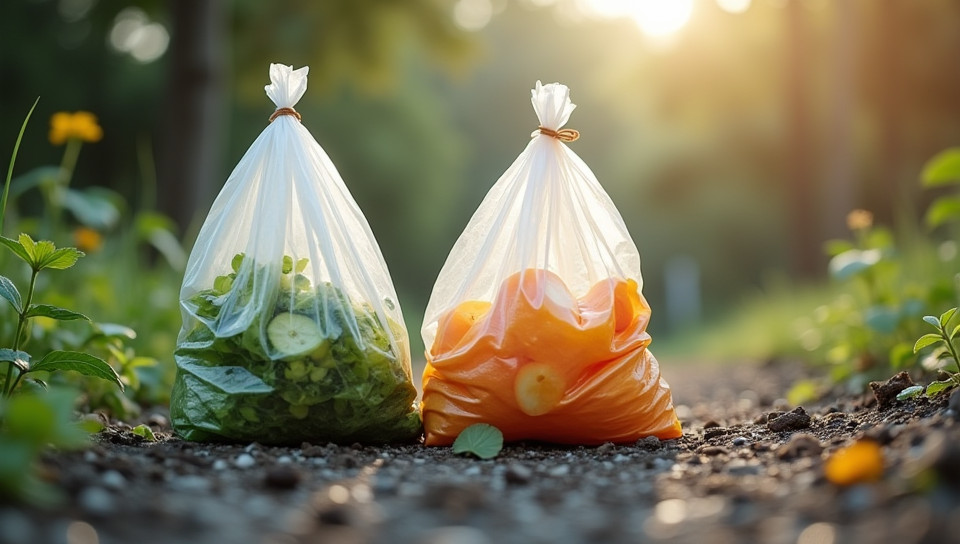Using plastic bags increases waste production significantly 85%

The Plastic Bag Problem: A Significant Contributor to Waste Production
Every day, we use plastic bags for our daily shopping needs without giving it much thought. We toss them into the trash or reuse them for other purposes, unaware of the impact they have on our environment. However, the truth is that using plastic bags increases waste production significantly, contributing to the staggering amounts of plastic waste in our oceans and landfills.
The Statistics are Alarming
- Plastic bags take hundreds of years to decompose
- They can kill animals by entanglement or ingestion
- Only a small percentage of plastic bags are recycled
- It's estimated that over 8 million tons of plastic waste enter the world's oceans every year
The Life Cycle of Plastic Bags
Plastic bags are made from non-renewable resources, such as petroleum and natural gas. They are produced, transported, used once, and then discarded. After use, they end up in landfills or oceans, where they break down into microplastics that harm marine life.
The Impact on the Environment
The production and disposal of plastic bags have severe consequences for our environment. Plastic bags contribute to:
- Litter: They can be seen blowing in the wind, covering streets, and polluting landscapes.
- Marine Pollution: Plastic bags can end up in oceans, where they harm marine life and contaminate the food chain.
- Climate Change: The production of plastic bags requires energy, which contributes to greenhouse gas emissions.
Breaking the Cycle
To reduce waste production, we need to change our behavior. Here are some simple steps you can take:
- Use reusable bags for grocery shopping and other errands.
- Choose products with minimal packaging or those that use biodegradable materials.
- Recycle as much as possible, including plastic bottles and cans.
Conclusion
The problem of plastic bag waste is a complex issue that requires a collective effort to solve. By making simple changes to our daily habits, we can significantly reduce the amount of waste produced by plastic bags. It's time for us to take responsibility for our actions and work towards a more sustainable future. Let's make a conscious choice to use reusable bags and reduce our impact on the environment.
- Created by: María Fernanda Fuentes
- Created at: Aug. 19, 2024, 11:39 p.m.
- ID: 7815







